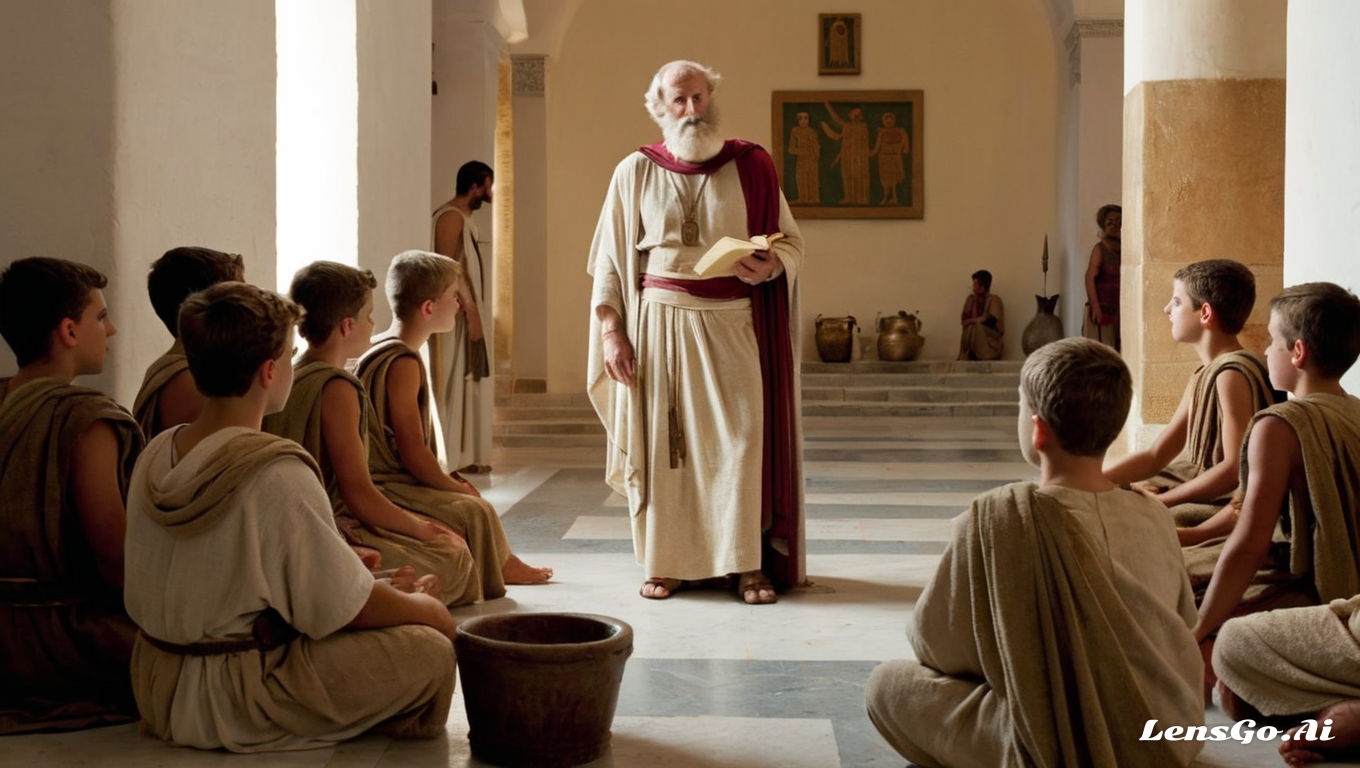Pythagorean Method
A new yet ancient technique for childhood education curated from the Classical world

Our Mission
“The school closures that took 50 million children out of classrooms at the start of the pandemic may prove to be the most damaging disruption in the history of American education. It also set student progress in math and reading back by two decades and widened the achievement gap that separates poor and wealthy children. These learning losses will remain unaddressed when the federal money runs out in 2024. Economists are predicting that this generation, with such a significant educational gap, will experience diminished lifetime earnings and become a significant drag on the economy. But education administrators and elected officials who should be mobilizing the country against this threat are not.” – The Editorial Board, The New York Times
Amidst a large scale crisis of educational and economic inequality, The Pythagorean Method exists to make meaningful strides in the fight to increase math and classics literacy among the poor and marginalized. The school systems for too long have failed both to teach necessary material and present it in engaging ways. At the heart of our project is music, and using the inherently disciplined and mathematical structure of music to teach various grade-school math requisites.
We are a not-for-profit team of motivated high-school and college students dedicated to the advancement of the underprivileged. It is our firm belief that by teaching traditional math in the way of our Greek forefathers, we can move any individual student forward, and give them a shot at future success.
Why Pythagoras?
The science of math began with the discovery that the pitch of a tone produced by a vibrating string depends on the length of a string. It is assumed that this discovery was made as long ago as 3000 BC. Stringed and wind instruments have been found in Babylon, Sumer, and ancient Egypt with the string lengths and the spacing of finger holes based on mathematical proportions.
The first influential figure on the Western musical scene to consider is Pythagoras, renowned Greek Mathematician.
Unfortunately little is known of the life of Pythagoras. Most written accounts of his life were lost. His birthdate is unknown but was probably around 580 B.C. He spent many years in Egypt and most likely Babylon where he must have learned much of their mathematics and astronomy. He finally ended up in the Greek colony of Croton where he established a school– which has influenced the scholastic world for over 2000 years. The group that made up the school were known as Pythagoreans. They lived communally and all of their work was published by Pythagoras, so it is actually unknown how many mathematical ideas called Pythagorean were actually the work or Pythagoras himself.

